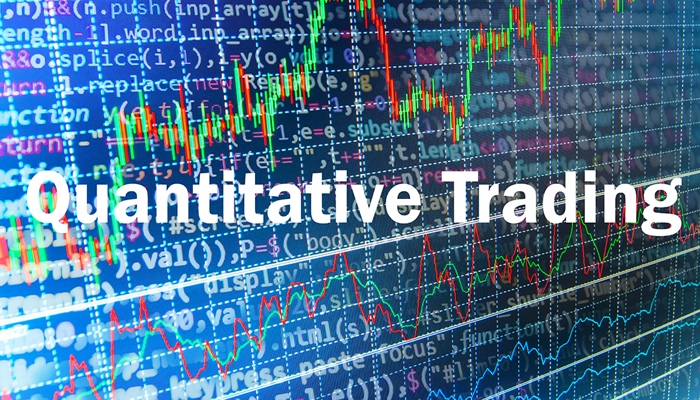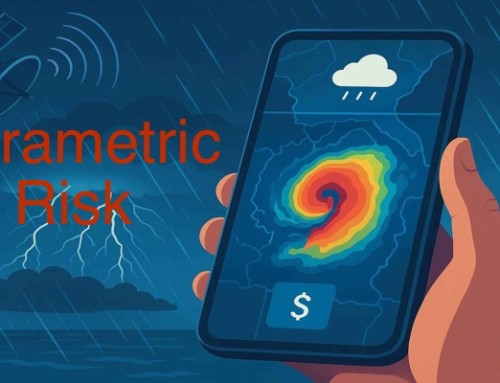Quantitative trading has been around since the 1970s. However, technology has changed so much in recent years that more people are now able to apply the practice. If you’re interested in this area, we have put together a quick guide on quant trading and how to become a Quant Trader…
Defining quantitative trading
First off, what actually is quant trading? Quantitative trading is a strategy that depends on statistics and data to detect patterns for more positive investment outcomes. The name comes from quantitative research i.e. that which is based on quantities, numbers and preprogrammed parameters, unlike qualitative data that can’t be measured numerically.
There is a virtually unlimited number of factors that can impact investment decisions – such as a global health crisis, interest rates, politics, economic cycles, extreme weather, wars and so on. Quant trading allows you to use maths and statistics to convert patterns over into a period of time into numbers. By looking at these patterns, Quant Traders are able to more accurately predict particular outcomes.
Let’s take a look at quant trading in action – for example with Amazon shares. If you look at the stock’s fluctuations, you can map certain weeks, months or years when its prices have tended to rise. Using data-based models, Quant Traders are able to predict the likely best times to invest in Amazon’s shares based on the chosen parameters. So your patterns might show that in 90% of years the stock price increases in value over the Christmas period, meaning there’s could be a 90% chance of this happening in the future.
Quant trading vs Algo trading
The two trading methods have one similarity in that they both require statistics to detect patterns.
The difference is that algo trading (algorithmic trading) uses automated systems. Patterns and percentages will be detected and the system automatically executes the trades. Quant trading will rely on patterns and percentages but it’s up to a human being to act on the opportunities identified.
What you need to become a Quant Trader
For a career in quantitative trading, you need more than a good mathematical mind. Quant Traders need to be fluent in advanced maths because it’s necessary for data research and testing.
At minimum, you’ll need a bachelor’s degree in Maths and a master’s degree in Financial Engineering, Quantitative Financial Modelling or a related subject. Many Quant Traders will hold a PhD too.
Candidates need to be familiar with the trading world and to be able to carry out their responsibilities at a speed that matches the industry—fast! On the one hand, you must be familiar with trading strategies and how they can be adapted; and on the other hand, you need to have the ability to create your own techniques.
In terms of IT know-how, Quant Traders will have excellent programming skills with a background in C++, Java, Python or Perl. Fluency in more than one programming language is a bonus as well as experience with data mining, big data, spreadsheets and commonly used tools such as MATLAB. Experience with creating algorithms for real-time data is part of the job.
Because of the level of technical experience, most candidates will have likely begun their career in a similar field and then move into quant trading. Data researcher and data analysis work make for a great foundation.
When looking at soft skills, an innovative mindset is going to drive your quant trading career forward. Rather than competing with other traders, you’ll be working in an environment where your strategies are competing with the strategies of others. Those who can think outside the box reap the rewards!
As with all trading, you also need to be confident when it comes to taking risks. What’s more, not every strategy will make it through the testing stage so a keen determination to succeed is a necessity.
What to expect as a Quant Trader
The skills and knowledge required for the demands of quant trading certainly pay off.
The average income for Quant Traders can range from $125K to upwards of $500K. More often than not, Quant Traders work long hours – perhaps averaging 60 hours a week. Annual bonuses are particularly attractive, with some bonuses for the extremely talented being as much as the annual salary or more. For the talented and hard-working, the rewards of being a Quant Trader are therefore clear to see.
#quanttrader #quanttrading #fintech #crypto #trading #offshore
See also: FinTech 101 | What are Cryptocurrency Exchanges?
If you want a job offshore, visit our jobs portal to see the latest vacancies. Are you starting a Crypto Exchange? Visit our Client Services page to see how we can help.







Leave A Comment
You must be logged in to post a comment.